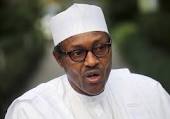At last, President Muhammadu Buhari’s much awaited “dream team” is now in place. All those who made it as cabinet ministers are expected to prosecute the All Progressives Congress’ change agenda with the singular determination of the taciturn boss at the Presidential Villa. The delay in appointing ministers and other major government functionaries was put down to the thorough integrity test which President Buhari reportedly put them through. Given the quality of the ministers, the issue of their competence is definitely beyond doubt.
Now is the time to hit the ground running, and the ministers must deliver without being corrupt; a concept that has received broad interpretations from top Nigerian politicians. We have no idea what President Buhari’s definition of corruption is, but let us look at what others say about Nigeria’s number one enemy.
Rev. Chris Okotie, in addressing this national malaise, said: “… corruption gave birth to terrorism in Nigeria. It … is a parasite that grows within every political process. It has always been the negative side of development all through the ages. It is the dark side of human nature called greed and avarice, and every political system in history has had to contend with a corrupt elite, be it in feudal, monarchical, totalitarian or authoritarian setting.
“The perpetrators of war crimes and corruption often target political power. They ascend the summit of political power by dubious means, using the promotion of some divisive doctrines that exploit ethnic fears or religious sentiments.”
Different views to the same topic. So, by what standards do we then judge corruption? Constitutional provisions, personal interpretations or even mere assumption of guilt, because, to properly address the root causes, and a political environment that accommodates corruption, and properly prosecutes judicial redress against errant officials, the constitution must be crystal clear on the interpretation under which guilt can be proved
Perpetrators of corruption, their cronies and legal counsel are dynamic and evasive in their devices, using loopholes and incongruities in law to manipulate courts into granting frivolous injunctions and delaying or even evading the course of justice. As such, if the elucidations made do not have clear legal scope, interpretations and judgments are often left to the presiding judge’s personal view, which in itself is subject to further protraction of the process.
Classically, corruption is defined as a state of moral degeneration, rot, spoil or depravity, characterised by improper conduct. Stealing on the other hand is defined as the act of unlawfully removing, taking or carrying away something without right or permission, or to get for oneself, slyly or by skill and daring. If these definitions are right, then stealing is part and parcel of corruption, under which it subsumes. So, while we welcome our new ministers, they are warned to stay above board while giving us 5-star performances.
Whether by direct misappropriation of money like stealing, diversion of funds, over-invoicing, use of various underhand tactics for treasury looting, or indirectly using “spiritual” oversight as a manipulative tool to receive gratification; corruption and stealing are corruption. So, with the high expectations which Nigerians and the world have of the Buhari and the APC administration, it is expected that the ministers will come under serious media and opposition PDP’s scrutiny, and God help whoever is found wanting.
For now, what matters are the socio-economic policies with which Team Buhari drives the change agenda which cannot exist in isolation. It must be accompanied by a total reordering of the economic climate that continues to make it possible for the old brigade political stalwarts and their cronies to twist the system for their selfish gains. Replacement of key personnel cannot by itself ensure a change in the norm, if the new men at the helm still have to work within the same flawed system. That is tantamount to self-delusion because the avenues for corruption are vast.
Twice, since the inception of President Buhari’s government six months ago, fuel scarcity and panic purchases have made queues at fuel stations a worrisome sight. While it can be explained away as the lingering subsidy problem inherited from the previous government, it has seen the President seeking Senate approval of a whopping N413bn (more than some states annual budget), to offset subsidy payments, the second by this government. To address this, one thing is imperative: The procurement template for fuel and/or export refining for local consumption must be restructured to save Nigerians from the corruption and death grip of exploitative petroleum marketers.
Some other such avenues are estimated electricity billing, exploitative accommodation prices, school fees, medical bills and virtually every mass market service which Nigerians ordinarily should enjoy; but yet, have to pay tooth and nail for. Okotie has said that change derives from “a vertical impetus that translates into a horizontal movement.” So, if the President really wants to deliver on his pledge, he should remain focused on his goals. For him to properly manage Nigeria’s unique problems of nationhood, indigenous solutions must be engendered to achieve the results that are required to move the nation forward.
President Buhari famously said that “If we don’t kill corruption, corruption will kill us”. The truism of the statement and its enforcement must include the separation of state from tribal and religious influences, and ensuring that all “formal and informal” channels of milking the nation by opportunists are plugged. The corruption in the nation, especially by the upper class, traditional institutions and religious elite as is witnessed in this country, has led to the collapse of economies, so the war must be total. Even if it means giving the President special powers to rid this impoverished nation of corruption, we must do so.
NATION
END


Be the first to comment